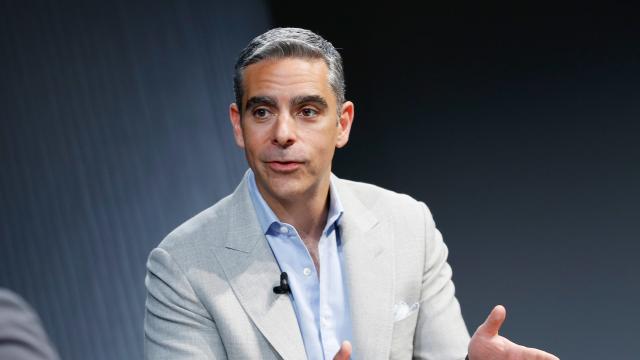Today has been exciting for anyone who cares about tension among Big Tech’s ultra-rich, as two executives have thrown barbs over Facebook’s management ethos.
The beef heated up this morning when Forbes published an interview with WhatsApp founder Brian Acton. Acton left Facebook a year ago — three and a half years after selling WhatsApp to Facebook for $US22 ($30) billion dollars.
Months after his departure, he helped lead the charge to #DeleteFacebook and gave $US50 ($69) million to the Signal Foundation, which created a competing messaging app, Signal, as well as an encryption protocol used by WhatsApp. In Wednesday’s Forbes article, Acton explained why he was so eager to bail on Facebook that he was willing to also bail on $US850 ($1175) million in unvested stock.
Acton said the main reason he left was because he disagreed with Facebook executives’ desire to focus on business analytic tools and targeted ads. And he told Forbes that Mark Zuckerberg, Facebook’s CEO, prioritised monetisation over encryption. “I sold my users’ privacy to a larger benefit,” Acton told Forbes. “I made a choice and a compromise. And I live with that every day.”
The article came two days after Instagram founders Kevin Systrom and Mike Krieger left Facebook — a decision reportedly stemming from their clashes with Zuckerberg.
While the Instagram executives were more congenial in their parting statements (explaining that they want “to explore our curiosity and creativity again”) than Acton has been, the attention on Facebook’s issues with the now-former executives at both acquired companies has brought a stream of negative attention towards Zuckerberg’s leadership.
Well, Facebook and Zuckerberg now have a defender in David Marcus, who is leading blockchain endeavours at Facebook after a stint as the head of Facebook Messenger. In Marcus’ public Facebook post titled “The other side of the story,” he said he “felt compelled to write” because of his “recollection of events that differ greatly from the reality I witnessed first-hand.”
Facebook did not respond to a Gizmodo request for comment on either Marcus’s or Acton’s statements. Marcus wrote that Facebook did not ask him to write the post and that it contains his “personal views exclusively.”
Marcus wrote that Zuckerberg granted the WhatsApp founders’ request for a unique, roomier office layout, even though it “irritated people at Facebook.” As far as the encryption disagreement, Marcus wrote that Zuckerberg defended strong encryption after WhatsApp co-founder Jan Koum convinced Zuckerberg of the importance of it.
And Marcus responded to Acton’s comments on Facebook’s approach to the business model for WhatsApp, writing that Zuckerberg “protected WhatsApp for a very long period of time” and suggested Acton was “passive-aggressive” in his approach and “actively slow-played the execution, and never truly went for it.”
Then Marcus dug in:
Lastly — call me old fashioned. But I find attacking the people and company that made you a billionaire, and went to an unprecedented extent to shield and accommodate you for years, low-class. It’s actually a whole new standard of low-class.
He concluded that Facebook improves billions of lives. “Because connecting people is a noble mission, and the bad is far outweighed by the good,” he wrote.
Despite the discontent and difference of opinions, there are two lives that have benefited greatly from Facebook — those of Marcus and Acton.
